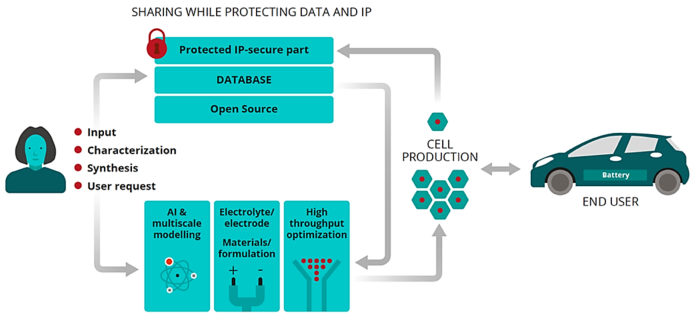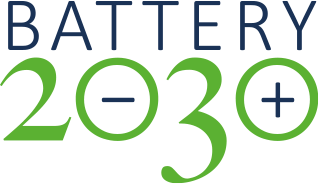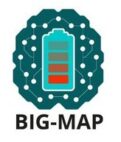Aims and goals
With the development of the Battery Interface Genome – Materials Acceleration Platform (BIG-MAP), we are proposing a radical paradigm shift in battery innovation, which will lead to a dramatic acceleration of battery discovery, achieving a 5-10-fold increase relative to the current rate of discovery within the next 5-10 years. BIG-MAP relies on the development of a unique R&D infrastructure and accelerated methodology that unites and integrates insights from leading experts, competences and data throughout the battery (discovery) value chain with Artificial Intelligence (AI), high- performance computing (HPC), and autonomous synthesis robotics. In short, BIG-MAP aims to reinvent the way we invent batteries and to develop core modules and key demonstrators of a Materials Acceleration Platform specifically designed for the accelerated discovery of battery materials and interfaces.
This will not be achievable in the three years of this project, but the BIG-MAP consortium has identified a set of specific objectives and 12 key demonstrators for the three-year ramp-up phase that will develop and demonstrate the infrastructural backbone needed to achieve a 5-10 fold acceleration in the discovery process.
Contribution to the roadmap goals
BIG-MAP project is devoted to addressing the key challenges identified under Theme I of the BATTERY 2030+ roadmap: “Accelerated discovery of battery interfaces and materials”.
BIG-MAP will deliver a transformative increase in the pace of new discoveries for engineering and developing safer, longer-lived, and sustainable ultra-high-performance batteries, by creating an autonomous, “self-driving” laboratory capable of designing and synthesising novel battery materials, and of orchestrating and interpreting experiments on the fly. A central aspect will be the development of a shared European data infrastructure capable of performing the autonomous acquisition, handling and analysis of data from all domains of the battery development cycle.
Objectives:
- Develop the scientific and technological building blocks and models for accelerated battery discovery,
- Deliver cross-cutting initiatives to ensure the implementation and use of project data and results throughout the battery discovery value chain,
- Disseminate information/innovations to the battery community throughout the Battery value chain, to boost EU advanced battery development and manufacturing.

Danmarks tekniske Universitet (DTU), Denmark
Project coordinator: Professor Tejs Vegge
Email: teve@dtu.dk

